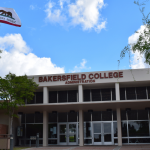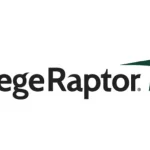Interview Conducted By: Damon Vangelis, Founder & CEO
Dr. James Catanzaro is a long-standing leader in higher education. He served as president of community colleges in four states for nearly four decades, including as President of Chattanooga State Community College for a quarter of a century. During those years and for a decade before, he taught college classes — in classroom, online and hybrid. Jim is currently Executive Director of the Higher Education Research and Development Institute – South (HERDI – South). In this interview with Ocelot, Dr. Catanzaro shares his views about the challenges and opportunities for community colleges in this most disruptive time.
Ocelot: How should community college leaders respond to Black Lives Matter and related social justice protests?
JC: College leaders should take the initiative. Most have been consumed since early Spring preparing for a never-before-seen fall semester. This ongoing scramble is producing a number of innovative practices, for some, revolutionary – in the way they recruit students, onboard them, house and feed them, even teach, advise, counsel and test them.
At the same time, another revolution has been underway in our society, also with dramatic implications for how colleges engage students, from first contact to graduation and beyond. It’s the Social Justice Revolution. Despite the power and reach of this revolution and the Black Lives Matter movement, many colleges appear not to have been preparing for a spill-over of protests onto their campuses or for taking leadership in this endeavor.
Here are several concrete actions I believe they should take this fall in support of social justice and inclusion.
Action 1: Establish a Social Equity Taskforce Reporting to the President.
With urgency in the charge, college presidents should assemble representatives of campus constituencies to address issues of social equity. The Taskforce should be weighted toward students and faculty who represent the historically disenfranchised along with recognized campus leaders. Taskforce members should receive a formal introduction to social equity and to evidence-based inclusive practices, both administrative and instructional.
Taskforce Responsibilities:
- Lead the college community in a thorough, unconstrained examination of all programs, services, policies, procedures, practices, position descriptions, customs, traditions, publications, branding and affiliations in relation to social equity.
- Recommend concrete actions the Taskforce by consensus believes will address identified inequities on campus.
- Review college speech policies in the context of how campus constituents and outsiders can and should engage in constructive activism. These recommendations should be weighted toward research-based solutions and recognized successful practices.
- Recommend messaging to the campus and the larger community.
Taskforce Outcomes – Recommended Strategic Actions:
Findings and recommendations for change approved by the college administration should be regularly put before the entire college community for review and adoption and reported by the president to the Board and community. Consensus rather than unanimity should be the baseline for approval. Each participant should feel part of the solutions.
Action 2: Add to the institution’s curriculum and to faculty and staff professional development a comprehensive review of the First Amendment in the context of improving equity and with a focus on freedom of expression, its protections and its boundaries.
This can be achieved through curriculum and course additions, micro-courses and seminars, lecture series, webinars, outside experts, and through student government and relevant student organizations.
Action 3: Explore, at every level of the college, strategies for improving personalized learning to ensure equity and student well-being.
- Academic Affairs, from the Provost to department chairs, and the College Curriculum Committee should begin a thorough review of instructional modalities in support of learner-centered, competency-based learning. The goal is to identify equity-driven instructional practices that support active learning and course and program completion for students with a range of learning deficits and styles. Inquiry, problem, project, and case-based teaching-learning strategies should be intensively explored. All individualized learning modalities should be directly and effectively supported by personalized mental health and resilience support.
- Student services should be reviewed for equitability with a focus on individual student social, mental and physical health and the goal that all students flourish.
To learn more about Ocelot go to ocelotbot.com.















